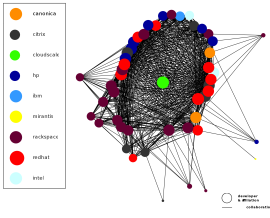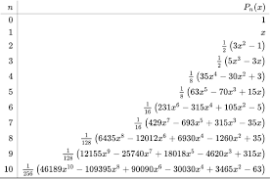- Fecha(s): 28/02/2019
- Lugar: Sala de Seminarios del CIO (Edificio Torretamarit).Universidad Miguel Hernández (Campus de Elche). Se grabará.
- Ponente: Juan de Dios Moreno Ternero (Universidad Pablo de Olavide de Sevilla)

Abstract: We consider the problem of sharing the revenues from broadcasting sport league events, introduced by Bergantiños and Moreno-Ternero (2019). We characterize a family of rules compromising between two focal and somewhat polar rules: the equal-split rule and concede-and-divide. The characterization only makes use of three basic axioms: equal treatment of equals, additivity and maximum…
- Fecha(s): 28/02/2019
- Lugar: Seminario del Departamento de Economía Aplicada. Retransmitido en directo.
- Ponente: Manuel Pérez García (Shanghai Jiao Tong University)

Abstract Global History, as a theoretical framework, has been in constant evolution during the last few years. Nevertheless, as the discipline reaches its maturity, the need to push the boundaries of the field becomes clearer; global historians need to avoid the stagnation of the debate by implementing research agendas that incorporate archival sources coming from…
- Fecha(s): 07/02/2019
- Lugar: Seminario del Departamento de Métodos Cuantitativos para la Economía y Empresa, UMU. Retransmisión en directo.
- Ponente: Luis Aguiar. European Commission – Joint Research Center

Abstract: Digitization has vastly increased the amount of new music produced and, because of streaming, has raised the number of songs available directly to consumers. While enhanced availability has levelled the playing field between already-prominent and new artists, creators may now be highly dependent on platform decisions about which songs and artist to promote. With…

Abstract: Empirical observation shows that policies are usually gradually introduced in a society. This paper presents a model of repeated elections that captures this phenomenon, and that allows countries to differ in their institutional flexibility, thus in the speed of implementation of new policies. We show that with gradual implementation of policies there is an…
- Fecha(s): 17/01/2019
- Lugar: Salón de Actos (Facultad de Económicas ) Universidad Nacional de Educación a Distancia UNED
- Ponente: Carlos Vidal Meliá (Universidad de Valencia)

Para poder seguir el seminario, usad el siguiente link (no hace falta autentificación) https://canal.uned.es/live/event/5c35a9fdb1111fd1708b4567 Habrá una grabación para que puedan efectuar la tarea aquellos que no se puedan conectar.
- Fecha(s): 01/02/2019
- Lugar: Seminario de Fundamentos del Análisis Económico Martínez Gallur
- Ponente: Luís Corchón

Abstract: In this paper we investigate the use of consumer surplus in monopoly when the consumption of the outside good cannot be smaller than a certain number and when the weights given in the social welfare function to consumers and the firm are different. We assume quasi-linear utility and constant returns to scale. We find…
- Fecha(s): 25/01/2019
- Lugar: Seminario Martínez Gallur B2/02
- Ponente: Juan Vicente Llinares
- Ponente: Susana Álvarez

Abstract: The consequences that educational underperformance has on both individuals and society as a whole lead policy makers and planners to focus on how to measure it properly. The aim of this paper is to propose an index to measure educational poverty which, taking as a starting point the economic literature on multidimensional poverty measurement,…
- Fecha(s): 18/01/2019
- Lugar: Seminario Tino Martínez Gallur - Facultad de Economía y Empresa. Universidad de Murcia
- Ponente: Alfonso Rosa García

Abstract A general finding in group contest is that there is an over-expenditure of effort, that is contests between groups generate very high individual efforts (and little free riding) compared to theoretical predictions. However, in the literature the way that the prize is shared ranges only between proportional sharing to egalitarian sharing. In many environments…
- Fecha(s): 16/11/2018
- Lugar: Seminario del Departamento de Métodos Cuantitativos para la Economía y Empresa, UMU. Retransmisión en directo.
- Ponente: Vita Zhukova. Universidad Católica San Antonio de Murcia

Business Angels are private individuals who invest their personal financial resources in new and growing small firms. To study Business Angels’decisions we design an experiment based on the Trust Game (Berg et al., 1995) and add a third party, the Business Angel, who decides whether and how much to invest in a firm that is…
- Fecha(s): 20/11/2018
- Lugar: Aula 0.2 del Edificio Torretamarit, Universidad Miguel Hernández de Elche (se grabará)
- Ponente: Francisco Marcellán, Instituto de Ciencias Matemáticas (ICMAT) and Departamento de Matemáticas, Universidad Carlos III, Madrid

The theory of orthogonal polynomials constitutes a nice example of the interplay between classical analysis, numerical analysis, linear algebra, probability theory and mathematical physics. In this talk we will deal with orthogonal polynomials associated with measures supported on the real line with a special emphasis on the situations where they are eigenfunctions of higher order…











